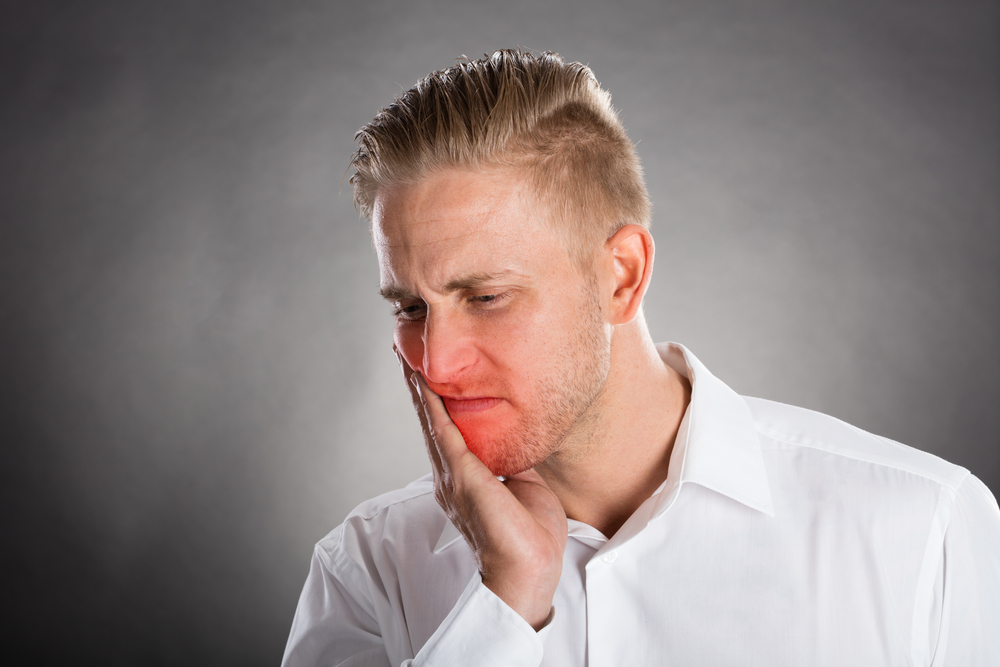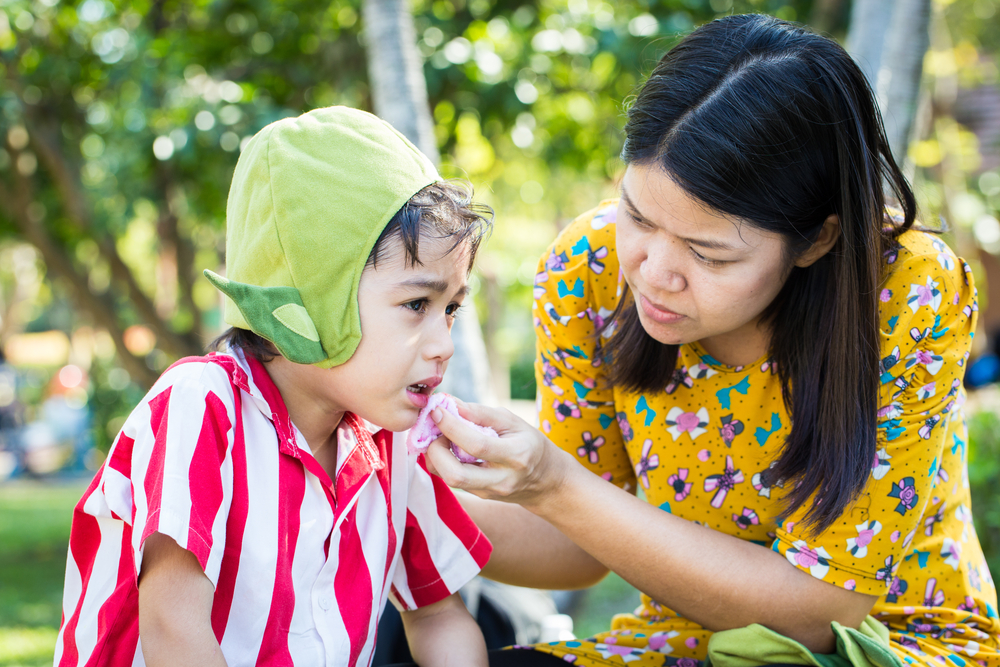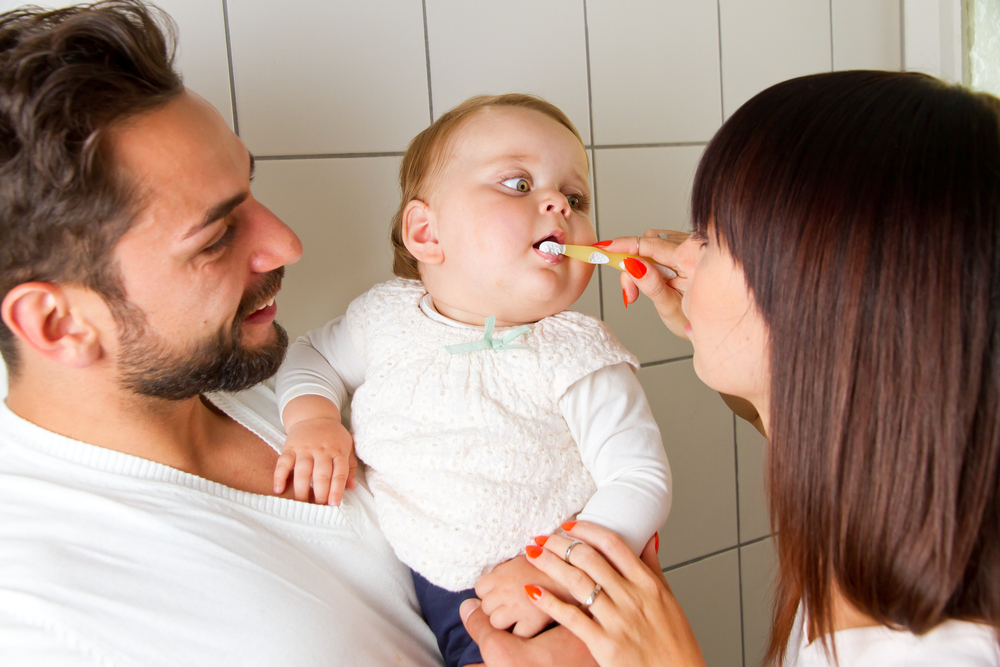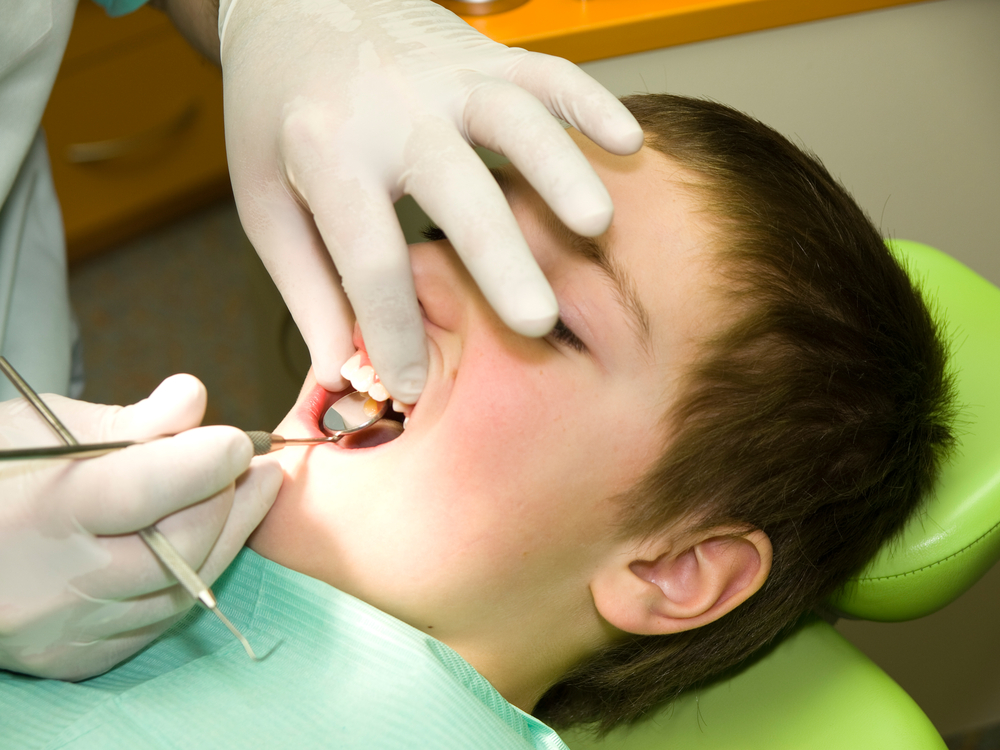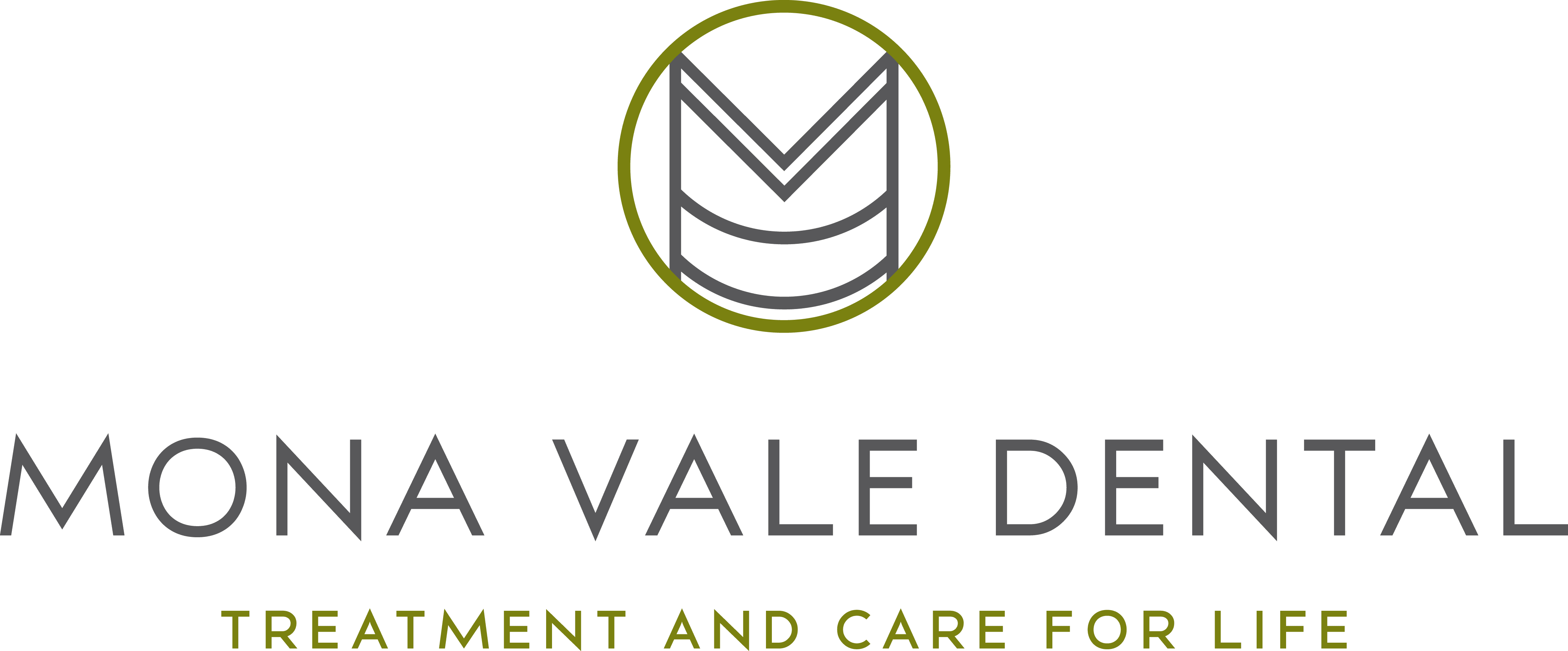Everyone should have an emergency dental care plan, in the event that something goes wrong. Although our team provides urgent support, there are certain steps you can take to protect your oral health during a crisis.
Why do so many dental emergencies occur at inconvenient times, when you’re so unprepared?
You’re rushing to work in the morning, when suddenly you feel a sharp pain in your jaw.
Or
You chip your tooth while chomping into a slab of rocky road on Christmas Day.
Or
A rogue soccer ball loosens your daughter’s incisor during team practise.
If you’ve experienced anything like this, you’re in good company. Dental injuries are commonly caused by falls, hits to the face, biting into hard food and sporting accidents.
It can be difficult to know if your pain warrants urgent attention, or if it can wait until your next appointment. When in doubt, err on the side of caution.
You’re experiencing a dental emergency if:
- Bleeding from your mouth doesn’t stop
- Teeth are loose, chipped or cracked after being hit in the face or mouth
- There’s swelling in your mouth or lower face
- You’re experiencing severe pain
In these cases, pick up a phone and book an appointment straight away. Emergency dental care increases your chances of a full recovery. The sooner you see your dentist, the less damage there will be. Ignoring the situation can prove detrimental to your oral health in the long-term and you may require expensive surgery.
Although your main objective is to see an emergency dentist within the hour, there are steps you can follow to minimise damage.
This is easier said than done, but try not to panic. Taking a few deep breaths to calm yourself can help you remember what you need to do.
Emergency dental care for adults: how to handle dental emergencies the best way?
Control bleeding:
Bleeding can result from injuries to your tongue, cheeks, gums and lips.
- Mix salt into tepid water to create a mild solution and rinse your mouth
- Apply pressure to the area for 15 to 20 minutes, using a clean cotton cloth, small piece of gauze or tea bag that has been moistened slightly.
- Check to see if the bleeding has stopped. If it continues, visit your dentist or the hospital emergency room right away.
Toothaches:
Emergency dentists treat a lot of severe toothaches. These are often caused by bacterial disease and don’t subside with painkillers.
Carefully rinse your mouth with warm water and remove trapped food particles with dental floss. Gently press a cold compress against your cheek or the outside of your mouth.
It’s important to see your dentist as soon as possible, to avoid serious complications, such as tooth demineralisation.
Knocked out tooth:
Don’t throw away your adult tooth, if it falls out. An emergency dentist can reattach your tooth, if you book an appointment straight away (ideally within one hour).
To keep your tooth viable:
- Hold it carefully by the crown, don’t touch the root.
- Softly push the tooth back into its socket. Alternatively, transport your tooth in milk or a saline solution as you travel to the dentist.
- As a last resort, you can carefully secure the tooth between your cheek and gum. If you’re worried that you might swallow it, simply place your tooth in plastic wrap with some of your saliva.
- This process applies to any chipped or broken parts of your tooth.
Partially dislodged tooth:
Hold a cold compress against the outside of your mouth or cheek, in the area of concern. Book an urgent appointment with your dentist.
Object trapped in teeth:
Fishing lines, bottle tops and stubborn particles of food are some items that become lodged in teeth. You may have luck using dental floss to gently remove the object. If this doesn’t work, visit your emergency dentist.
Abscess or root infection:
If you notice a painful swelling on your gum that looks like a pimple, see your emergency dentist urgently. Other symptoms include extreme pain when biting down and tremendous sensitivity to hot or cold temperatures.
You can try and gently draw the pus toward the surface to ease the pain, and rinse your mouth with a warm salt water solution.
Left untreated, these infections cause serious damage by spreading to your teeth, gum and other parts of your body. It can be life-threatening.
Dislodged crown or filling
You can use sugarless gum as a temporary fix to fill a cavity, if you happen to lose your filling.
In the event that your crown becomes dislodged, try to secure it back into place with toothpaste and see your dentist as soon as possible.
In both cases, avoid chewing on the side of your mouth where the problem is. It’s best to steer clear of hot or cold beverages as well.
Don’t make the mistake of using glue of any kind to reattach the crown or filling, as this can create all sorts of problems.
As a short-term fix, a swab of clove oil applied to the area can help to dull the pain. Clove contains a numbing agent called eugenol, and it works as an anaesthetic to kill infection.
Your local pharmacy or grocery store should stock clove oil. Use only a small amount, for less than three days and do not swallow the oil. Children under 12 years of age and pregnant women shouldn’t take it.
Emergency dental care for children: what to do in a dental emergency?
If your child sustains an injury to their mouth or teeth, check to make sure they’re not wounded anywhere else as well. For example, it’s not uncommon for children to hurt their heads when falling. Sometimes these injuries are more serious than oral pain and need to be attended to first.
Before taking any action, ensure there’s no bleeding or swelling on their head. It’s important to look out for swelling for hours after the accident, as this can take time to show up. Make sure your child is breathing normally too. If there’s any bleeding, swelling or disrupted breathing, take your child to the emergency department right away.
Damaged teeth
In the event that your child loses their tooth, your dentist can reattach it, if you take the right steps.
Follow the same steps outlined in the adult section above.
Please note this only applies to adult teeth. If your child loses their baby tooth, don’t place it back in their mouth for safe-keeping, since it won’t be reattached.
Toothache
Pain is a normal part of the process for teething babies. This isn’t a dental emergency, but it can be very stressful (for the parent too!). A small amount of pressure with a cold spoon or chilled washcloth can help relieve the pressure, but make sure it isn’t frozen or too cold!
For older children, rinse their mouth with salt water, apply a cold compress to ease swelling and ring their dentist. Paracetamol can help relieve pain too.
Damaged wires or braces
This might not seem like a situation requiring emergency dental care, but a broken wire can cause a lot of discomfort, especially when eating or talking.
You can gently push the wire into a more comfortable position using an eraser. If this doesn’t work, a temporary solution is to cover the end with cotton, orthodontic wax or a tiny piece of gauze.
Orthodontic wax also provides a cushion over braces that cut into lips.
Never try to cut the wire, as your child may swallow or inhale the tiny pieces, which can be dangerous.
The same advice applies to adults with braces!
Emergency dental care isn’t as effective as prevention:
Sometimes accidents happen and there’s little you can do to avoid emergency dental care, no matter how careful you are.
But there are steps you can take to reduce the risk of damaging your mouth.
1. Be careful when eating hard foods such as nuts
2. Don’t use your teeth as a tool (for activities like opening bottles, tying fishing lines and ripping bags).
3. Ask your dentist to customise a protective mouthguard, if you do the following sports:
- Bike riding
- Football
- Soccer
- Basketball
- Hockey
- Squash
- Rock climbing
- Skateboarding
- Boxing
- White-water rafting
- Trampolining
Tooth decay is the leading cause of dental pain. Protect your oral health by brushing and flossing regularly. Teach your children how to clean their teeth twice a day with a small, soft-bristled brush. An electric toothbrush can deliver a more effective (and fun) cleaning, when they’re old enough to use one.
Emergency Dental Services at Mona Vale Dental
We know how stressful it can be when someone in your family needs emergency dental care.
Our team always makes time to treat emergencies, whether you’re an existing patient or new to our practice.
If you’ve never seen us before, we’re happy to treat the emergency and share the information with your regular dentist.
Please contact us on (02) 9997 1100 to book an urgent appointment.


